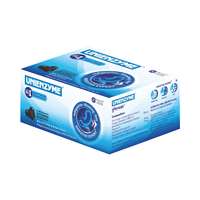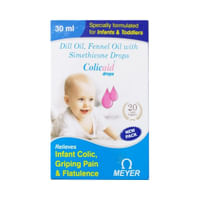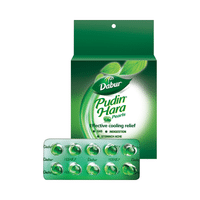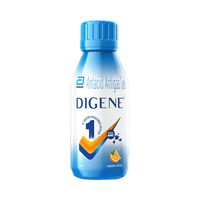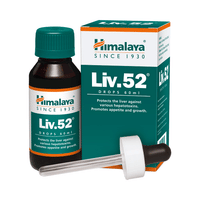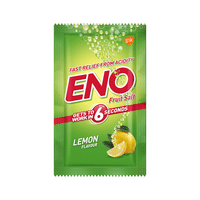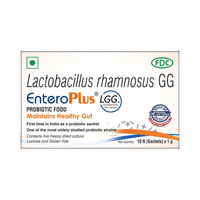Rs.42.20for 1 vial(s) (1 Injection each)
food interaction for Vanirab Injection
alcohol interaction for Vanirab Injection
pregnancy interaction for Vanirab Injection
lactation interaction for Vanirab Injection
food
alcohol
pregnancy
lactation
No interaction found/established
Alcohol should be used with caution while taking Vanirab Injection.
CAUTION
The safety of Vanirab Injection during pregnancy has not been established. There are no adequate and well-controlled studies in pregnant women, and animal data on reproductive toxicity are insufficient. Your doctor will weigh the benefits and any potential risks before prescribing.
CONSULT YOUR DOCTOR
Vanirab Injection may be unsafe to use during breastfeeding. Limited human data suggests that the drug may pass into the breastmilk and harm the baby. It should be used only if the expected benefit outweighs the potential risk. Please consult your doctor.
CONSULT YOUR DOCTOR
SALT INFORMATION FOR Vanirab 20mg Injection
Rabeprazole(20mg)
Vanirab injection uses
{med_name} is used in the treatment of acidity, gastroesophageal reflux disease (acid reflux) and peptic ulcer disease.
How vanirab injection works
Vanirab Injection is a proton pump inhibitor (PPI). It works by reducing the amount of acid in the stomach which helps in relief of acid related indigestion and heartburn.
Common side effects of vanirab injection
Abdominal pain, Weakness, Diarrhea, Nervousness, Bronchitis (inflammation of the airways), Sinus inflammation, Sleepiness, Vertigo, Rash, Dryness, Increased liver enzymes, Dermatitis, General discomfort, Decreased white blood cell count (neutrophils), Decreased white blood cell count, Low blood platelets, Increased white blood cell count, Decreased appetite, Depression, Visual disturbance, Stomach inflammation, Stomatitis (Inflammation of the mouth), Taste change, Itching, Sweating, Weight gain, Thrombophlebitis, Headache, Nausea, Vomiting, Flatulence, Dizziness
SUBSTITUTES FOR Vanirab Injection
604 Substitutes
604 Substitutes
Sorted By
 Rs. 113.44pay 142% more per Injection
Rs. 113.44pay 142% more per Injection Rs. 163.31pay 154% more per Injection
Rs. 163.31pay 154% more per Injection Rs. 157.23pay 32% more per ml of Injection
Rs. 157.23pay 32% more per ml of Injection Rs. 110.16pay 161% more per Injection
Rs. 110.16pay 161% more per Injection Rs. 144.70save 38% more per ml of Injection
Rs. 144.70save 38% more per ml of Injection
Expert advice FOR Vanirab Injection
- Your doctor will administer Rabeprazole as an injection into a vein.
- It is a well-tolerated medicine and provides relief for a long time.
- Some healthy tips to prevent acidity from happening:
- Avoid excessive intake of carbonated beverages/soft drinks, citrus juices, fried food, caffeinated beverages like tea and coffee.
- Avoid alcohol and smoking.
-
Avoid eating late at night or before bedtime.
- Inform your doctor if you get watery diarrhea, fever or stomach pain that does not go away.
- Long-term use of Rabeprazole can cause weak bones and a deficiency of minerals such as magnesium. Take adequate dietary intake of calcium and magnesium or their supplements as prescribed by your doctor.
- Consult your doctor right away if you develop decreased urination, edema (swelling due to fluid retention), lower back pain, nausea, fatigue, and rash or fever. These could be signs of a kidney problem.
- Rabeprazole should be taken 1 hour before a meal, preferably in the morning.
- It is a well-tolerated medicine and provides relief for a long time.
- Some healthy tips to prevent acidity from happening:
- Avoid excessive intake of carbonated beverages/soft drinks, citrus juices, fried food, caffeinated beverages like tea and coffee.
- Avoid alcohol and smoking.
-
Avoid eating late at night or before bedtime.
- Inform your doctor if you get watery diarrhea, fever or stomach pain that does not go away.
- Inform your doctor if you do not feel better after taking it for 14 days as you may be suffering from some other problem that needs attention.
- Long-term use of Rabeprazole can cause weak bones and a deficiency of minerals such as magnesium. Take adequate dietary intake of calcium and magnesium or their supplements as prescribed by your doctor.
- Consult your doctor right away if you develop decreased urination, edema (swelling due to fluid retention), lower back pain, nausea, fatigue, and rash or fever. These could be signs of a kidney problem.
Frequently asked questions FOR Vanirab 20mg Injection
Rabeprazole
Q. What is Vanirab Injection used for?
Vanirab Injection is used for the treatment of stomach and intestinal ulcers (gastric and duodenal ulcers), reflux esophagitis or gastroesophageal reflux disease (GERD). It works by reducing the amount of acid made by your stomach and thus relieves your symptoms. Vanirab Injection also prevents acidity associated with use of painkillers and stress ulcers in critically ill people. It is also used to treat a disease associated with excessive acid production in the stomach known as Zollinger Ellison syndrome (ZES). Vanirab Injection is also helpful as a preanesthetic medication (medicine given just before anesthesia) to reduce the chances of aspiration related complications like lung injury.
Q. Can I stop taking Vanirab Injection if I feel better?
No, do not stop taking Rekool before completing the full course of treatment. You will start to feel better before your treatment is complete. Vanirab Injection is given into a vein, only if oral administration is not possible, for upto 7 days. As soon as the person is able to take it orally, intravenous administration is stopped and oral form is prescribed. Take Vanirab Injection only as prescribed by your doctor to get maximum benefit.
Q. Is Vanirab Injection safe?
Yes, Vanirab Injection is relatively safe. Most of the people who take Vanirab Injection do not get a side effect. It is advised to be taken as directed by the doctor for maximum benefits.














